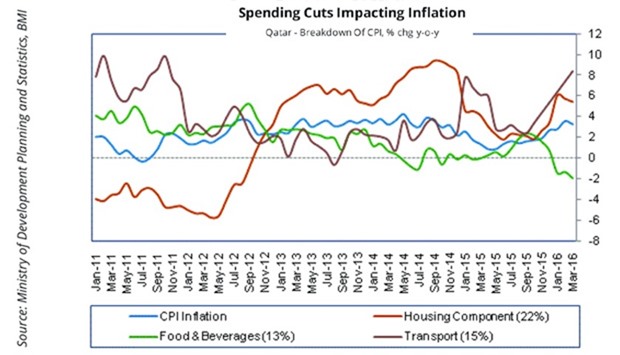“Despite the hike, fuel and gasoline prices in Qatar remain among the lowest in the world,” Olivier Najar, Country Risk analyst (Mena) at BMI Research told Gulf Times in an interview.
Currently, the fuel price in Qatar announced by the Ministry of Energy and Industry is as follows: gasoline (super 97) QR1.30/litre, gasoline (premium 90) QR1.15 and diesel QR1.40.
In January, Woqod (Qatar Fuel) had announced a revision in fuel prices, the first one in five years.
Despite the recent revision, fuel prices in Qatar are still among the most affordable in the world.
Qatar was among the last countries in the region to raise fuel prices early this year.
Saudi Arabia, Bahrain, the UAE and Oman revised their respective fuel prices upwards since mid-2015, following the fall in crude oil prices in the international market.
On inflation in Qatar, Najar said several projects in both affordable housing and high-end property were in the pipeline in Qatar, and this would ensure that inflationary pressures from housing remain mild, compared to what was the case between 2006 and 2008.
“The QCB will be able to maintain interest rates stable without worrying extensively about inflationary pressures, which we forecast will average 2.9% over 2016. In March, annual inflation stood at just 3.3%, even as the impact of subsidy cuts started feeding through to transport prices,” he said.
According to BMI Research, a Fitch Group company, Doha is looking to reform its subsidy system and liberalise prices for utilities and fuel, while restraining the public sector wage bill and placing renewed emphasis on the private sector.
In contrast to previous years, supply-demand dynamics in the retail housing market will begin to loosen, as the slump in global energy prices and a greater supply of residential units s tart to pull prices downward over the coming quarters .
“Combined with the continuing strength of the US dollar - to which the Qatari riyal is pegged - this will ensure that inflation remains moderate over 2016,” BMI Research said.

